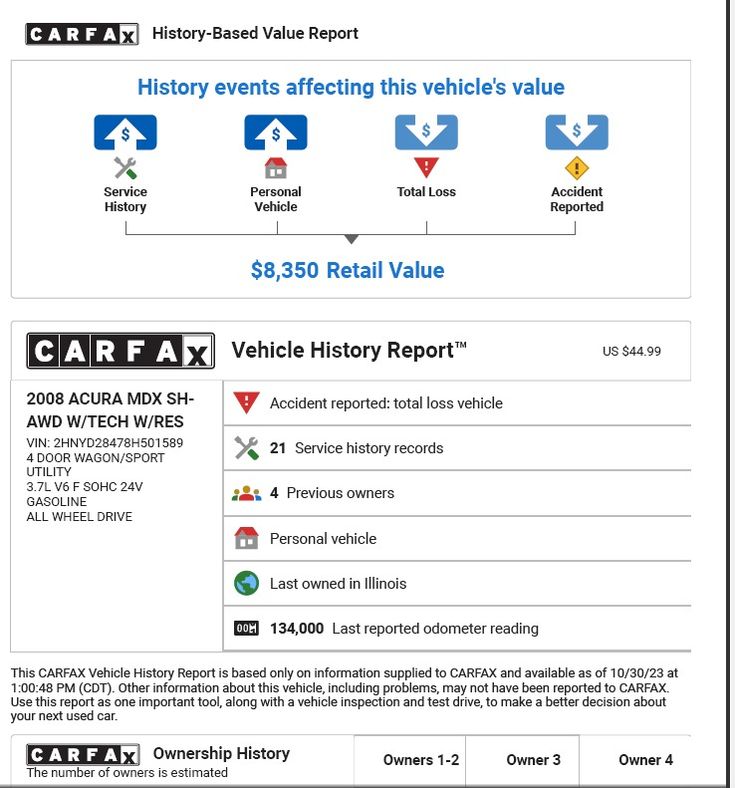Introduction:
Buying a used car can be a daunting task, especially with the potential for hidden problems. A Carfax report is a valuable tool that can help you make an informed decision by providing a comprehensive history of a vehicle. This report details the car's past, including accidents, service records, and ownership changes. By understanding how to read a Carfax report, you can gain valuable insights into a car's condition and avoid potential pitfalls.

This guide will walk you through the key sections of a Carfax report, explaining what each piece of information means and how it can impact your decision. We'll cover everything from accident history to service records, helping you decipher the report and make a confident purchase.
Understanding the Basics
A Carfax report is a comprehensive document that summarizes a vehicle's history. It's compiled from various sources, including state and federal databases, insurance companies, and repair shops. The report provides information on:
- Accidents: This section details any reported accidents, including the severity, date, and location.
- Service Records: This section lists any maintenance and repairs performed on the vehicle, including oil changes, tire rotations, and major repairs.
- Ownership History: This section shows the number of previous owners and the dates of ownership changes.
- Title Information: This section provides details about the vehicle's title, including any liens or encumbrances.
- Other Information: This section may include additional information, such as emissions tests, odometer readings, and vehicle recalls.
Deciphering the Report
When reviewing a Carfax report, it's important to pay attention to the following key areas:
- Accident History: Look for any accidents that resulted in significant damage or injuries. A car with a history of major accidents may have underlying structural issues.
- Service Records: Check for regular maintenance and repairs. A well-maintained car is likely to be in better condition than one with a sparse service history.
- Ownership History: A car with frequent ownership changes may indicate potential problems. It's also important to note any gaps in ownership, which could suggest a hidden history.
- Title Information: Ensure the title is clear and free of any liens or encumbrances. A lien on the title could make it difficult to finance the vehicle.
Using Carfax to Make Informed Decisions
A Carfax report can be a valuable tool for making informed decisions about buying a used car. By understanding the information it provides, you can:
- Identify potential problems: A Carfax report can help you identify any red flags that may indicate a car is not worth buying.
- Negotiate a fair price: Knowing the car's history can help you negotiate a fair price with the seller.
- Avoid costly repairs: A Carfax report can help you avoid buying a car with a history of major repairs.
Conclusion
A Carfax report is an essential tool for anyone buying a used car. By understanding how to read and interpret the information it provides, you can make a more informed decision and avoid potential pitfalls. Remember to always review the report carefully and ask any questions you may have before making a purchase.





